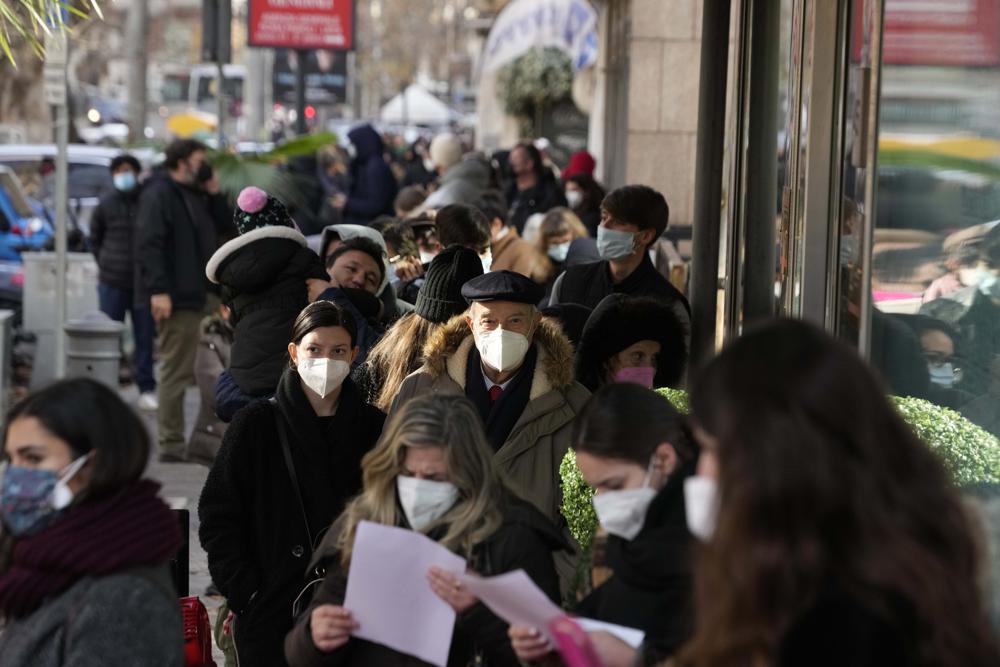SuaraRiau.co -Some European countries such as Spain are making tentative plans for when they might start treating COVID-19 as an “endemic” disease, but the World Health Organization and other officials have warned that the world is far from declaring the pandemic over. An overview of what endemic means and its implications for the future.
WHAT DOES IT MEAN TO BE ENDEMIC AS A DETERMINATION OF A PANDEMIC?
A disease is endemic when it occurs regularly in a particular area according to a predefined pattern, whereas a pandemic refers to a global outbreak that causes an unpredictable wave of disease.
The World Health Organization says that redefining the coronavirus as an endemic disease is “a long way off,” according to Catherine Smallwood, an infectious disease expert at the agency’s European headquarters in Copenhagen, Denmark. “We still have a large amount of uncertainty and a rapidly evolving virus,” he said earlier this month.
For many countries, designating a disease as endemic means fewer resources are available to combat it, as it is likely that the disease will no longer be considered a public health emergency.
WHO WILL DECIDE WHEN COVID-19 IS ENDEMIC?
Most rich countries will probably make that decision themselves depending on how the virus circulates within their borders and on the potential for new cases to cause a major outbreak. COVID-19 vaccines, drugs, and other measures widely available in rich countries will likely help them curb outbreaks long before the virus is brought under global control.
The WHO does not technically declare a pandemic. Its highest alert level is a global health emergency, and COVID-19 has warranted that distinction since January 2020. The UN health agency has convened a committee of experts every three months since then to reassess the situation.
It is likely that the pandemic will end when WHO experts declare that COVID-19 no longer qualifies as a global emergency, but the criteria for that decision are not precisely defined.
“This is a rather subjective assessment because it’s not just about the number of cases. It’s about severity and it’s about impact,” said Dr. Michael Ryan, WHO’s head of emergencies.
Others point out that designating COVID-19 as endemic is arguably a political question rather than a scientific one, and it speaks of how much disease and death national authorities and citizens are willing to tolerate.
SO WHAT DOES SPANISH PROPOSE?
Spanish Prime Minister Pedro Sanchez said last week that the decline in the death rate for COVID-19 showed that it was time for European officials to start considering whether the disease should be considered endemic. That means Spanish officials no longer need to record every COVID-19 infection and that people with symptoms do not need to be tested, but they will continue to be treated if they are sick. The proposal has been discussed with several EU officials, but no decision has yet been made.
In October, the European Center for Disease Prevention and Control issued advice on how countries could shift to more routine COVID-19 surveillance after the acute phase of the pandemic. Among its recommendations, the agency said countries should integrate their monitoring of the coronavirus with other illnesses such as the flu and test a representative sample of COVID-19 cases, rather than trying to test everyone with symptoms.
DOES ENDEMIC MEAN THE PROBLEM IS ENDING?
Not. Many serious diseases, including tuberculosis and HIV, are considered endemic in some parts of the world and continue to kill hundreds of thousands of people every year. Malaria, for example, is considered endemic in many parts of sub-Saharan Africa and is estimated to cause more than 200 million cases annually, including about 600,000 deaths.
“Endemic itself is not necessarily good,” said Ryan. “Endemic just means it’s here forever.”
Health officials warn that even after COVID-19 becomes an established respiratory virus like the seasonal flu, it will continue to be fatal for some.
Even after the pandemic is over, “COVID will stay with us,” said Dr. Chris Woods, infectious disease expert at Duke University. “The difference is that people are not going to die indiscriminately because of it, and it will become so routine that we will have much better and fairer access to vaccines, therapies and diagnostics for all.”
–


